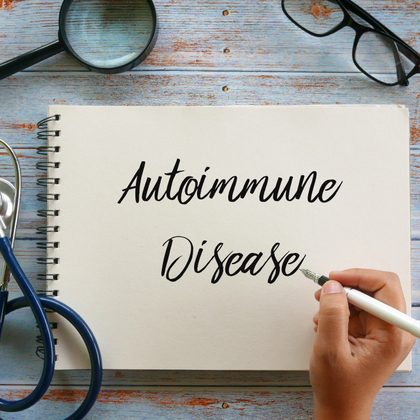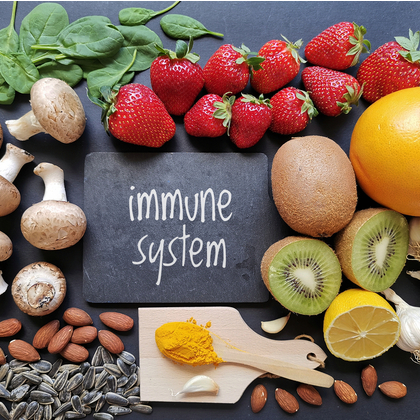
When the coronavirus pandemic started its march across the world’s continents, one of the many things we started hearing about frequently was the search for a vaccine. At one point the World Health Organization was tracking more than 170 different vaccines being developed and tested around the world (i). This global obsession with finding a vaccine for the SARS-CoV-2 virus is, of course, understandable – after all, it was a vaccine that eradicated smallpox, one of the deadliest diseases ever known to humankind (ii).
Vaccines – or inoculations – are used to achieve immunisation, which is when you’re made immune or resistant to an infectious disease. Indeed the development of immunisation has been fundamental in the advancement of human health. According to the World Health Organization, it currently prevents two to three million deaths every year worldwide in all age groups by protecting us against diseases including diphtheria, whopping cough (pertussis), polio, tetanus, flu and measles (iii).
But what are vaccines exactly, and how do they work with the immune system to protect us against viruses, bacteria and other disease-causing germs (pathogens)?
Pathogens and antibodies
Vaccines work by ‘training’ the immune system to recognise pathogens and attack them. To understand this in a little bit more detail it’s a good idea to remind ourselves about the immune system and how it operates.
When we come into contact with pathogens, our immune system has several tools at its disposal to fight them and stop them from multiplying in our bodies and making us sick. Your immune system’s first lines of defence include your skin, your mucous membranes and the acids produced in your stomach. If a pathogen gets past all of these defences, defensive white blood cells take up the fight. Some of these white blood cells are called lymphocytes, and they help by producing antibodies.
Antibodies are large proteins that recognise and hunt down pathogens and mark them for destruction by the immune system. They do this by recognising markers on the surface of pathogens, called antigens.
Your lymphocytes produce unique antibodies for each pathogen/antigen that invades your body, with each different antibody triggering a specific immune response. However it can take a few days for your immune system to make the antibodies it needs, by which time the invading pathogen may have multiplied, making you feel ill. But when you have enough antibodies they help get rid of the pathogens, and you’ll start to recover.
Immune system memory
The great thing about your immune system is that even when an infection has passed some of the antibodies your lymphocytes made to tackle the offending pathogen will remain. This means if you encounter that pathogen again, your immune system will already have the antibodies to destroy it quickly, which means it won’t have time to make you ill.
Your immune system’s natural ability to make antibodies and ‘remember’ pathogens is the basic idea behind vaccination. Vaccines contain a harmless form of a pathogen (the pathogen is inactivated, weakened or broken down into small parts before being used in the vaccine). That way, the vaccine itself doesn’t make you sick, but it’s enough to ‘trick’ your immune system into thinking a real pathogen has broken in. As a result you produce antibodies to fight the form of the pathogen in the vaccine, with some of those antibodies staying in your immune system and stopping you getting sick should you ever come across the real pathogen at some point in the future.
What is herd immunity?
Most of us hadn’t heard about the concept of herd immunity before the coronavirus pandemic, but it’s something experts in infectious diseases are well acquainted with.
Herd immunity refers to a vaccine’s ability to protect entire populations, rather than just individuals. After all, vaccinations aren’t suitable for everyone – some people with certain illnesses, for instance, are advised not to have certain vaccines, as are those who have compromised immune systems; even those who are allergic to eggs may decide not to have the flu vaccine, as some are made using eggs (though egg-free flu vaccines are now more widely available).
If the majority of people are vaccinated and develop immunity to a pathogen, those who aren’t immunised usually benefit too, since there are relatively few opportunities for the pathogen to cause infections in the population overall (health experts are still trying to work out the ideal percentage of the population that needs to be vaccinated – the figure could be around 60 to 70 per cent or more). This is the idea behind herd immunity.
If too many people fail to get vaccinated, however, herd immunity can break down, and the result can be an increased risk of outbreaks.
Types of vaccines
There is no one-size-fits-all approach to developing vaccines. Lots of factors will determine how a vaccine works, including the infection it’s protecting against, how the corresponding pathogen infects cells and what type of immune response is launched against it. There are different types of vaccines, including the following:
Live attenuated vaccines
These contain a weakened version of a living virus or bacteria, and are the closest thing to a real-life infection. The virus or bacteria in the vaccine, however, is weakened so that it doesn’t make you sick. However some people who have a weakened immune system – people living with AIDS, for example, or those who are having chemotherapy treatment – should not have live vaccines, as there is a chance they could cause an actual infection. Examples of live vaccines include the MMR vaccine (MMR stands for measles, mumps and rubella) and the chickenpox (varicella) vaccine.
Inactivated vaccines
These are also designed to protect against viruses and bacteria, but this time the virus or bacteria in question are inactivated (or dead). They tend to be less effective than live vaccines, so you may only become immune to the pathogen in question for a short time (in which case you may need boosters to maintain immunity). On the other hand, while live vaccines need to be refrigerated, inactivated vaccines are more stable in warmer temperatures, which means they are often more effective in countries where refrigeration can be a problem. Examples of inactivated vaccines are those for hepatitis A, rabies and some flu vaccines.
Toxiod vaccines
This type of vaccine defends against diseases caused by bacteria that produce toxins in the body, such as tetanus and diphtheria. The vaccine contains the relevant toxins, but weakened and made harmless by chemical or heat treatment (toxoid is the name for a toxin that has been weakened). Despite being weakened, toxoids are still recognised by your immune systems’ lymphocytes, which prepare your immune system to defend against them in the future.
Subunit vaccines
Subunit vaccines contain parts of a virus or bacteria – called subunits – rather than the whole pathogen. They are made from the relevant parts of the antigen that are needed to trigger an immune response, and nothing else – the reasons is that they‘re less likely to cause any side effects. The vaccine for whooping cough (pertussis), which is included in the 6-in-1 vaccine given to babies (see below), is an example of a subunit vaccine.
Conjugate vaccines
These also only contain specific parts of a pathogen and are used to prevent bacterial infections such as haemophilus influenzae type b. They help the immune system to develop a response by combining a strong antigen with a weak antigen. Other types of vaccines that don’t contain the whole version of the pathogen include recombinant vaccines – which help the body to produce antigens by using the DNA that encodes that particular antigen – and polysaccharide vaccines.
How many doses?
Some vaccines have to be given in more than one dose to build up or maintain your immunity. There are a few different reasons why this happens:
-
The initial vaccine does not provide as much immunity as you need.
-
The initial vaccine provides immunity, but that immunity starts to wear off after a while.
-
The initial vaccine provides a strong immune response in some people, but not all (additional doses make sure as many people as possible are protected).
-
The virus that causes the disease the vaccine is protecting against changes, which means you need a different version of the vaccine on a regular basis (the flu vaccine, for example, has to be given every year to maintain immunity to different strains of the virus that come and go every winter).
Are there side effects from vaccines?
According to the NHS, most of the side effects of vaccination are mild and don’t last long (iv). If you do experience any side effects, the most common are redness, soreness and a little bit of swelling in the part of your arm where you had the injection. Babies and young children can also feel slightly unwell or may develop a raised temperature for a day or two after having certain jabs.
Some people have allergic reactions to vaccinations, but this is rare – and if it does happen, it usually happens very quickly (within a few minutes. This means you’ll still be with the health professional who vaccinated you, and anyone giving vaccinations is trained to manage allergic reactions. This means they’ll know what to do and can treat you immediately if you do have an adverse reaction.
-
If you have a known allergy to gelatine or eggs, speak to your doctor before having a vaccine.
Vaccines given in the UK
In the UK most vaccines are given to babies and children, but some are also given to adults. Here are some you may have heard of:
6-in-1 vaccine
This is given in three doses to babies aged 8, 12 and 16 weeks. It protects against six serious childhood diseases: diphtheria, hepatitis B, haemophilus influenza type b (Hib), polio, tetanus and whopping cough.
Pneumococcal vaccine
Babies, older adults aged 65+ and children and adults with certain long-term health conditions are given this vaccine to protect against infections such as pneumonia, sepsis (often called blood poisoning) and meningitis. Babies currently need two doses, but adults usually only need a single jab.
MenB vaccine
Babies are given three doses of this vaccine, which protects against meningococcal group B bacterial infections (these can cause meningitis and sepsis).
Rotavirus vaccine
This two-dose vaccine is given to babies as an oral liquid rather than an injection, and it protects against rotavirus, a highly infectious stomach bug that causes diarrhoea, vomiting, stomach pain and high temperature.
Hib-MenC vaccine
One-year-olds get this single-dose vaccine to prevent Hib and meningitis C. This jab helps to boost the protection they previously received from the 6-in-1 vaccine.
MMR vaccine
Another two-dose vaccine, this is given to children aged one year and three years and four months, and protects against measles, mumps and rubella (German measles). Complications of these diseases include meningitis and hearing loss.
HPV vaccine
This helps protect against cancers caused by the human papillomavirus (HPV), and is given to 12- and 13-year-olds in school year 8. It is given in two doses, six to 12 months apart.
MenACWY vaccine
Offered to teenagers in school years 9 and 10, this vaccine helps prevent meningitis and sepsis. Young people starting college or university are encouraged to make sure they’ve had this vaccine (it’s available up until the age of 25).
Flu vaccine
Flu can be unpleasant even for healthy people, but it can make those in certain vulnerable groups very sick, which is why it’s offered to some every autumn free on the NHS (if you’re not eligible for a free flu jab you can still get one privately by paying a small fee). You need a flu vaccine every year to stay protected, as the flu viruses in circulation change from one season to another. The UK government is currently expanding the number of people who get the free flu vaccine in an attempt to reduce the pressure flu puts on the NHS every winter.
Shingles vaccine
If you’re aged 70 to 78 you’re eligible for a vaccine to prevent shingles, which can be very painful and sometimes serious for this age group. Shingles is caused by the reactivation of the chickenpox virus, which means you must have had chickenpox previously to get it. According to the NHS, around one in five people who’ve had chickenpox to on to develop shingles (v).
Travel vaccines
People who travel to certain parts of the world are advised to have vaccinations to protect them against serious diseases found in those countries. For instance, there are vaccines to protect against polio, typhoid, hepatitis A and cholera. All of these are provided free on the NHS, but you have to pay for other travel jabs (including, for instance, rabies, yellow fever, hepatitis B and tuberculosis).
You can find out more about vaccines that you’ll need for different countries by visiting travelhealthpro.org.uk/countries
Meanwhile there’s lots more to discover about immune health in our Immunity pages. For information on a wide range of health issues, visit our pharmacy health library.
References:
-
Available online: https://www.who.int/publications/m/item/draft-landscape-of-covid-19-candidate-vaccines
-
Available online: https://www.who.int/csr/disease/smallpox/vaccines/en/
-
Available online: https://www.who.int/news-room/facts-in-pictures/detail/immunization
-
Available online: https://www.nhs.uk/conditions/vaccinations/why-vaccination-is-safe-and-important/
-
Available online: https://www.nhs.uk/conditions/vaccinations/shingles-vaccination/
Related Posts
Disclaimer: The information presented by Nature's Best is for informational purposes only. It is based on scientific studies (human, animal, or in vitro), clinical experience, or traditional usage as cited in each article. The results reported may not necessarily occur in all individuals. Self-treatment is not recommended for life-threatening conditions that require medical treatment under a doctor's care. For many of the conditions discussed, treatment with prescription or over the counter medication is also available. Consult your doctor, practitioner, and/or pharmacist for any health problem and before using any supplements or before making any changes in prescribed medications.

Christine
Christine Morgan has been a freelance health and wellbeing journalist for almost 20 years, having written for numerous publications including the Daily Mirror, S Magazine, Top Sante, Healthy, Woman & Home, Zest, Allergy, Healthy Times and Pregnancy & Birth; she has also edited several titles such as Women’ Health, Shine’s Real Health & Beauty and All About Health.
View More



